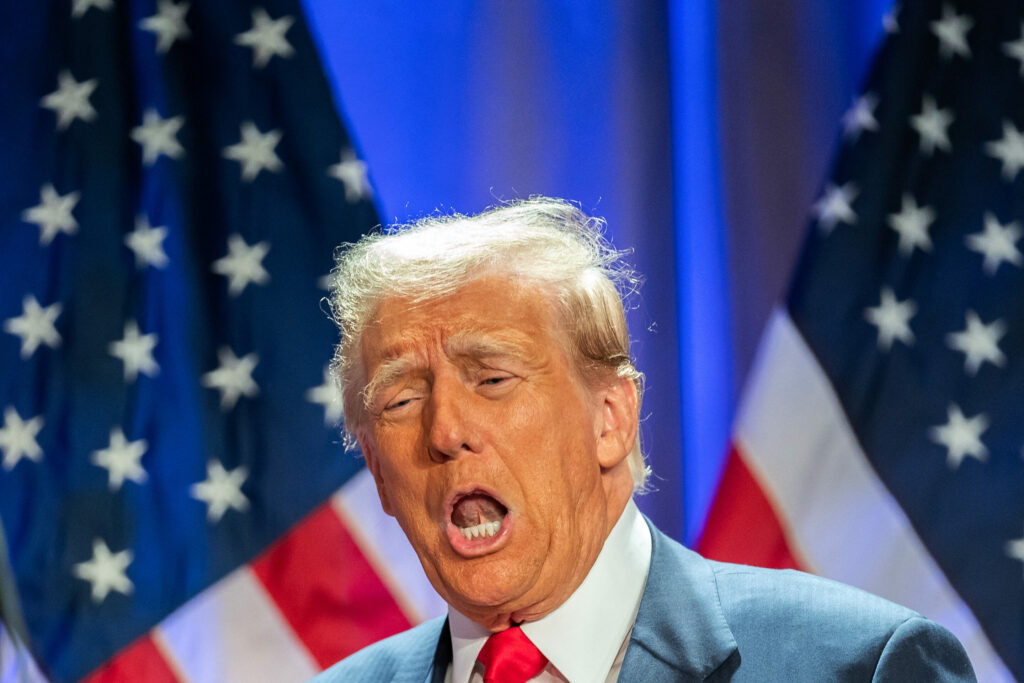Donald Trump is entering the White House today. The US President-elect will start his second term as he left it, ignoring the Biden blip which interrupted his grand vision to "Make America Great Again".
In 2025, Trump re-enters office in a very different world. When he left, the Covid-19 pandemic was in its 13th month. The US had just surpassed 400,000 deaths, with leading public health experts calling his handling of the pandemic “incompetent and dishonest”.
Before that, Trump’s leadership was defined by the Mexican border wall, tearing up the Paris climate agreement, Black Lives Matter protests, government shutdowns, Muslim travel bans, attacks on the right to abortion and trade protectionism. He attacked EU and NATO allies while cosying up to North Korean dictator Kim Jong Un and staying hostile to China. He raised eyebrows with his praise of Putin.
After losing the 2020 election, Trump remained in the headlines largely thanks to his legal woes.
Notably, his role in inciting his supporters into a political uprising at Capitol Hill on 6 January in Washington DC which many expected would signal the end of his political career. He was convicted of a felony as part of a conspiracy to undermine the 2016 election (which won him the presidency) in the Stormy Daniels "hush money" scandal. Last week, a US Justice Department report said that he would have also faced another conviction for his “criminal efforts” in trying to overturn the result of the 2020 presidential election.
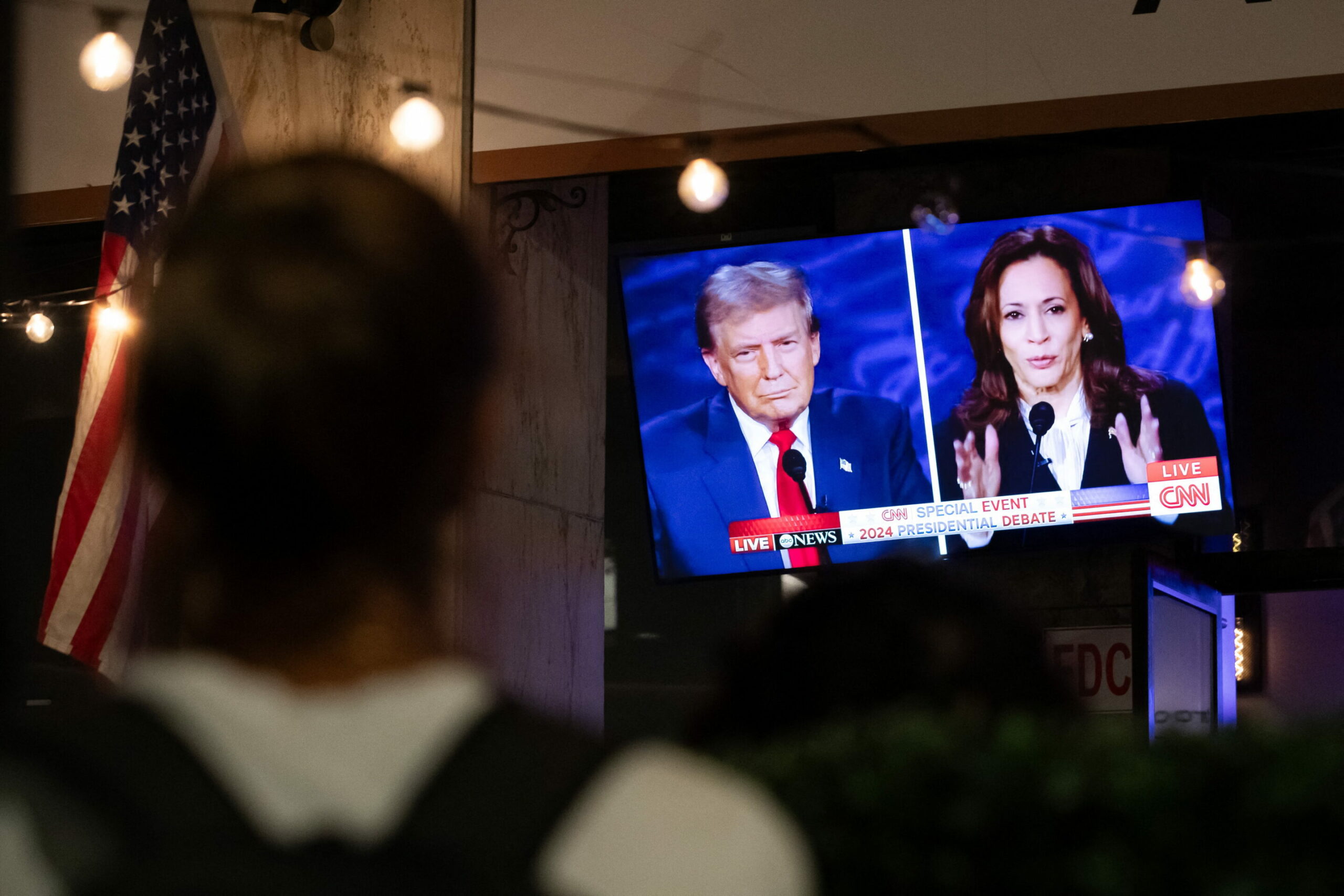
person stops to watch a screen displaying the US Presidential debate between Democratic candidate Kamala Harris and former US president and Republican presidential candidate Donald Trump in Washington, DC, on September 10, 2024. Credit: Belga / AFP
Return of the king
Yet, with rival Democrats in disarray and a dramatic survival of an assassination attempt, Trump easily won a second term.
Europe watched on, but the ramifications potentially have teed up an existential battle for the EU. Elon Musk’s increasing interference in European politics, added to Mark Zuckerberg’s change of course on harmful content moderation, shows Silicon Valley’s increasingly belligerent attitude towards the EU and its leading digital regulatory system, the Digital Services Act (DS). Whether EU officials can withstand US pressure remains to be seen. There are already reports that Brussels were rethinking ongoing investigations into big US tech platforms ahead of Trump’s return to the White House.
The European Commission will also need a response to Musk and his cosying up to the far-right. As a threat to European political stability, the far-right's rise in Europe is greatly tied to Trump's normalisation of extremist parties. Indeed, Musk's style on social media takes a leaf straight out of Trump’s book, which helped him get elected in 2016, the issue of course is that Musk now owns the platform which made Trump.
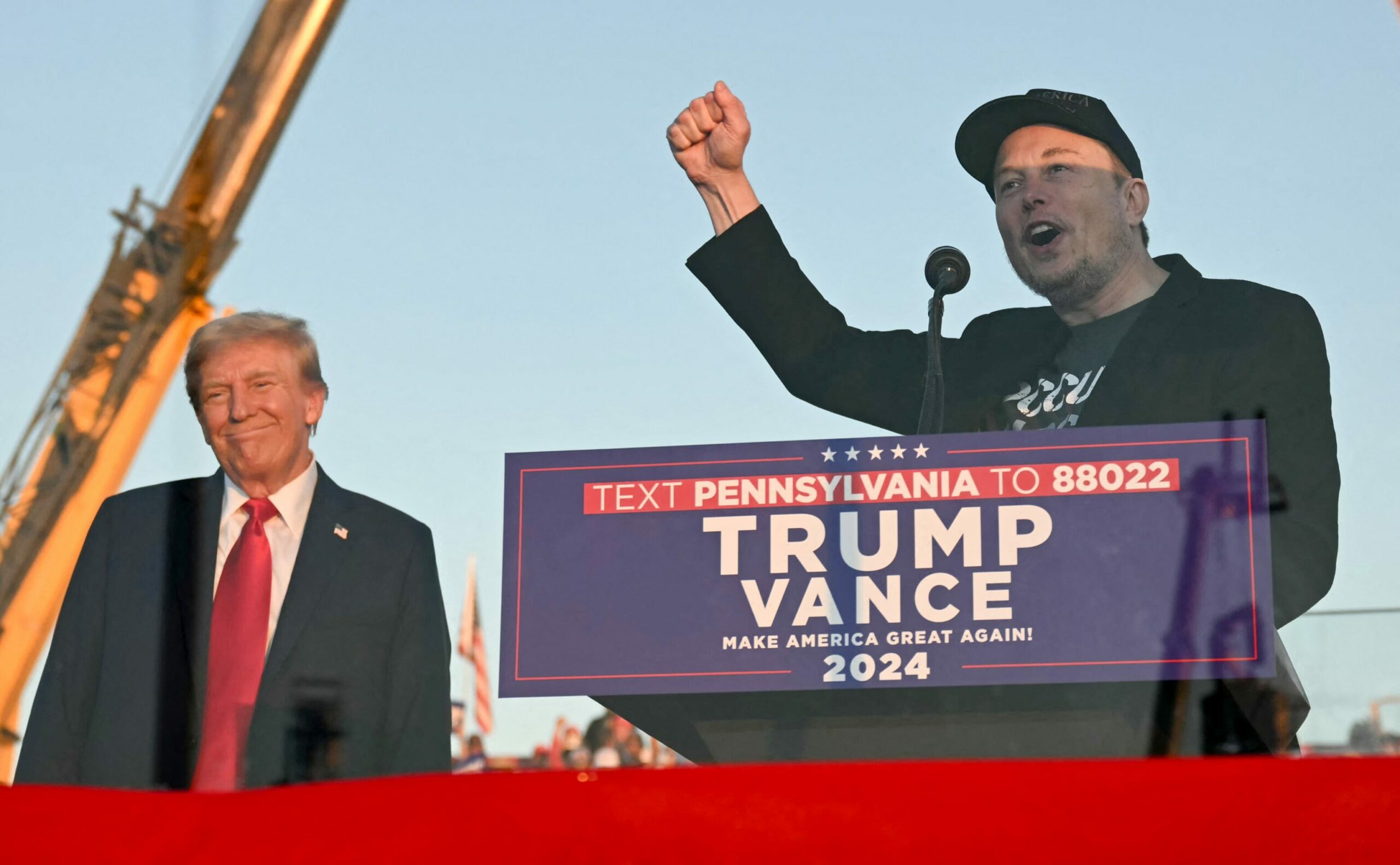
Donald Trump and Elon Musk at a presidential rally in 2024. Credit: Belga
This could partly explain why many Europeans are dreading a second Trump presidency – even if they appear to be alone in their concern. A poll released on Wednesday by the European Council of Foreign Relations (ECFR), taken in 24 countries, revealed that the rest of the world has a more positive view of Donald Trump’s second term than Europe.
Not only do many think Trump will be positive for the United States, but they also believe he will bring peace or reduce tensions when it comes to Ukraine, the Middle East and US-China relations.
Peace and war
Remarkably, Ukrainians are "slightly more positive" than not, about the impact Trump might have on ending the conflict with Russia. However, Trump’s aims to end the war and what this means for territorial concessions for Russia, could greatly divide Ukrainians. Sections of the Republican Party’s great admiration for the Russian President could also spell trouble.
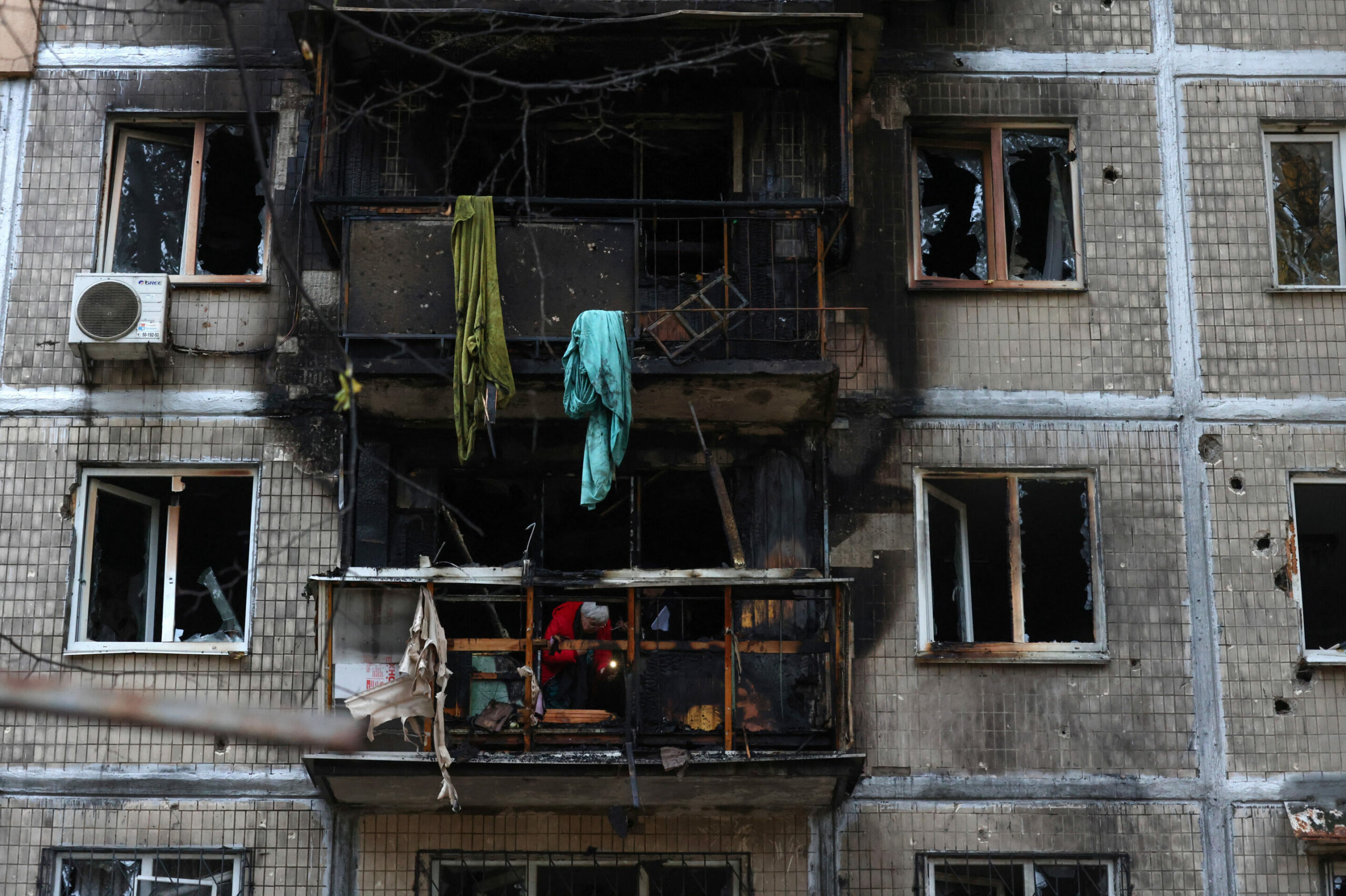
An elderly woman appears in her apartment, which burned down as a result of the explosion of a drone strike in Kyiv, on October 30, 2024, amid the Russian invasion in Ukraine. Credit: Belga / AFP
Yet Trump’s first setback appears to have materialised on his biggest foreign policy promise. He claimed he would strike a peace deal between Ukraine and Russia on his first day in the White House – this appears unlikely to say the least. Last week, his advisors conceded that the Ukraine war will take months or even longer to resolve.
In the Middle East, Trump will continue to take credit for the breakthrough in the ceasefire negotiations between Israel and Hamas.
While Trump’s arrival in office undoubtedly added extra urgency, Biden’s administration has also been hard at work to secure a deal. The Qatari Prime Minister even praised the collaboration between the two US administrations. The framework which was agreed on Thursday was almost identical to the one Biden put forward in May 2024. Trump will be hoping that any deal will hold, or he will face two foreign policy setbacks early on.
The 5%
Enter NATO. Trump has called for a raising of the military alliance’s defence spending requirements from 3% of GDP to 5%.
Many members, including Belgium, are well below that mark, failing to even make 3%. Perhaps unsurprisingly, given is passion for the game, Trump likens NATO membership to that of a golf club, where all members should pay their way.
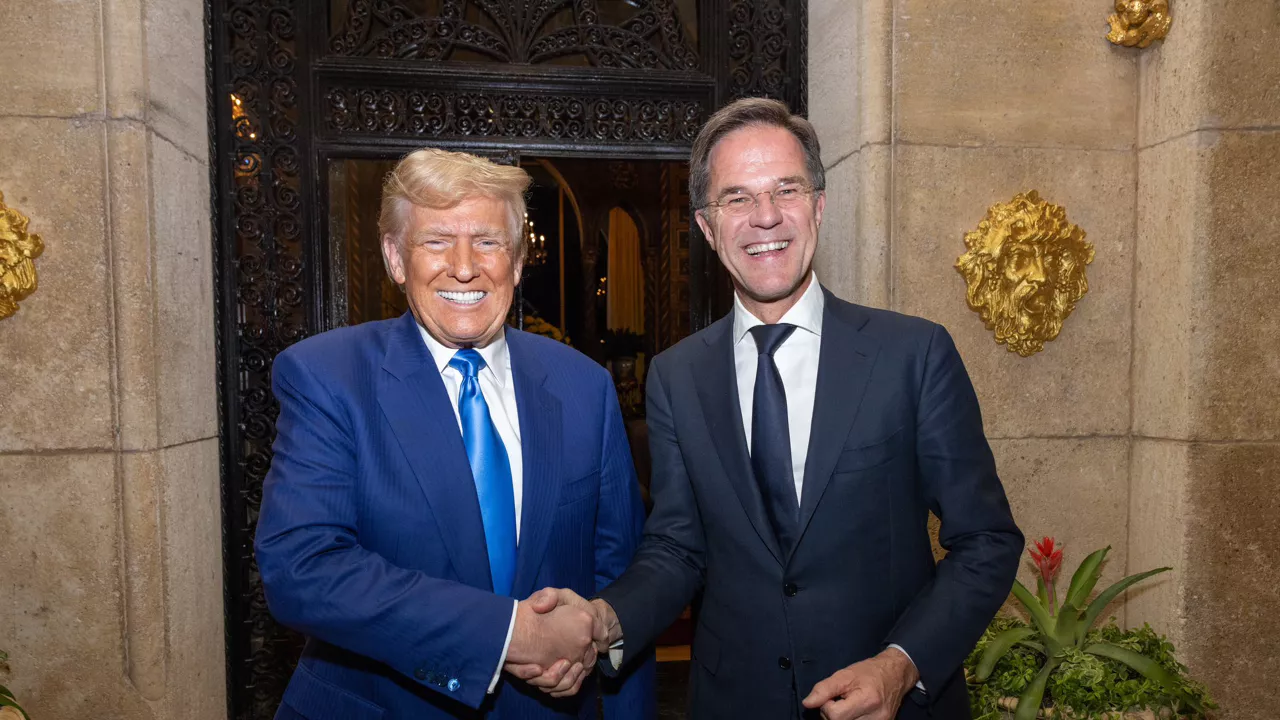
Trump with NATO Secretary General Mark Rutte. Credit: NATO
While the transatlantic military alliance is undoubtedly a good deal for the United States, Trump’s remarks have shifted the debate in Brussels and European capitals. In fairness, it had already been picking up pace due to Russia’s invasion of Ukraine. It had led to renewed calls for Europe’s strategic autonomy, notably in defence.
It is unlikely the military alliance will be either weakened or scrapped, but the issue could help further divide Europe.
For example, German Chancellor Scholz rejected the calls for raising defence spending to 5%, while Poland has supported it. Belgium - which of course hosts NATO headquarters - too faces a dichotomy of needing to reduce public spending while also being asked to greatly boost its military.
Land grab
Trump’s obsession with defence spending also leads back to his desire for the US to control the autonomous Danish island of Greenland. Eyebrows were raised again when Trump brought back the issue, continuing where he left off during the last presidency.
In 2019, Trump cancelled a visit to Denmark after Prime Minister Mette Frederiksen rejected the possibility of selling Greenland. After Trump refused to rule out military force in his bid, Denmark announced a new billion-dollar defence boost for the autonomous territory. At stake are the island’s critical resources, with some diplomats in Beijing suggesting it could also be linked to China’s expanded presence in the Arctic.
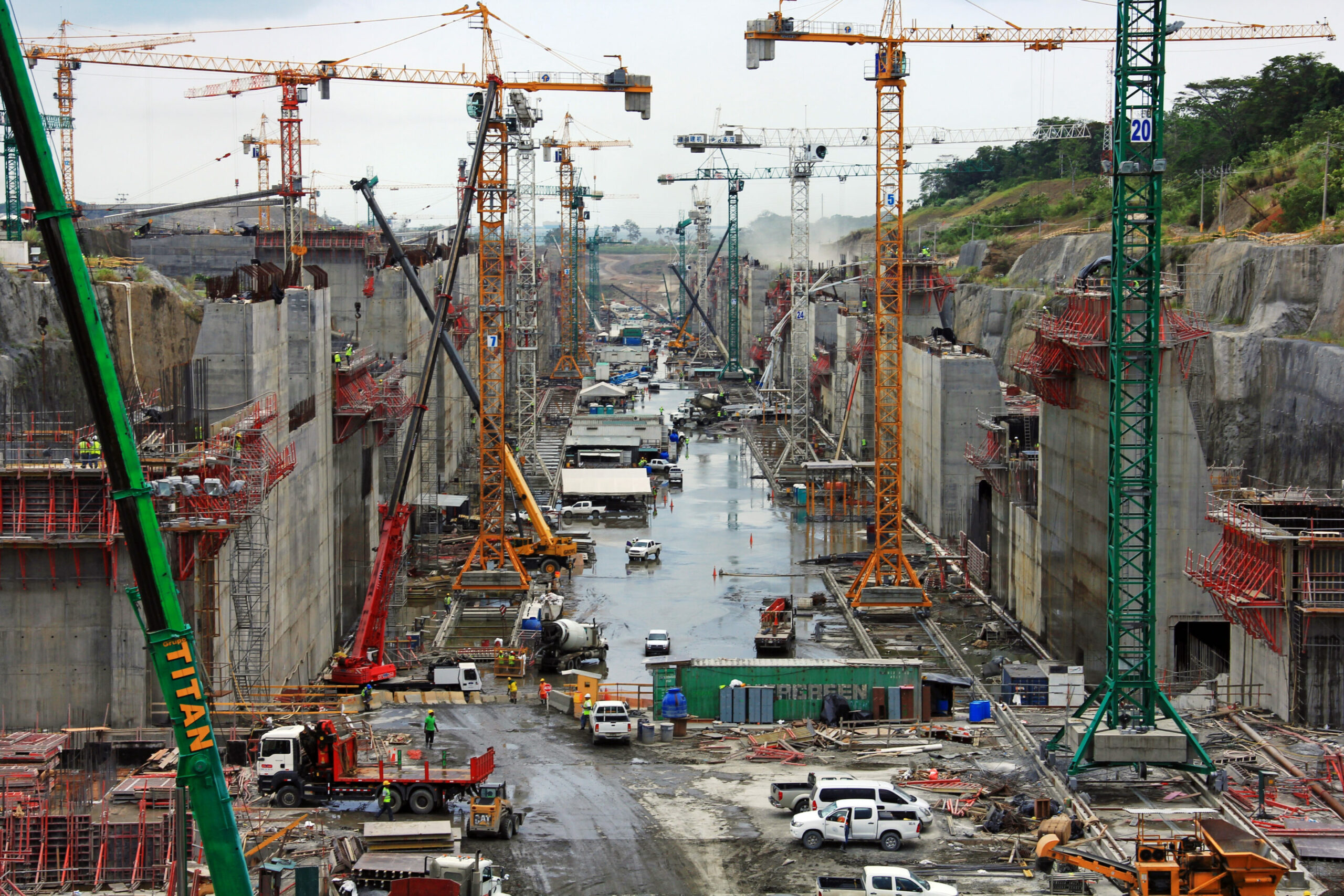
Works in the Panama canal in 2024. Credit: Belga
Trump’s claims about seizing the Panama Canal too, link back to China. Since opening its economy to rely on exports four years ago, the canal is increasingly important for Beijing, and the US fears losing influence there.
It is also showing hostility to the activity of others, including Brazil or European countries operating in the area.
Interestingly, Reuters reports that since Trump’s claims about Greenland, some Chinese commentators say this opens up a debate on Taiwan, given the US has always called for China’s “restraint” over its territorial claims. However, the Chinese foreign ministry has pushed back on this.
Trump vs China
Either way, Trump’s ascent to power continues to be underpinned by American anxieties over the economic rise of China, whose economy remains on track to surpass that of the United States within five to 10 years.
The Mar-a-Lago man, who has threatened to slap tariffs of 10% to 60% on goods from China, will likely return to his trademark hostile trade policy which has reversed decades of US-led international free trade. He is expected to protect American industry from cheap Chinese imports in a bid to correct his country’s trade deficit with China. Beijing's global dominance in solar projects and electric vehicles is another strategic long-term challenge.
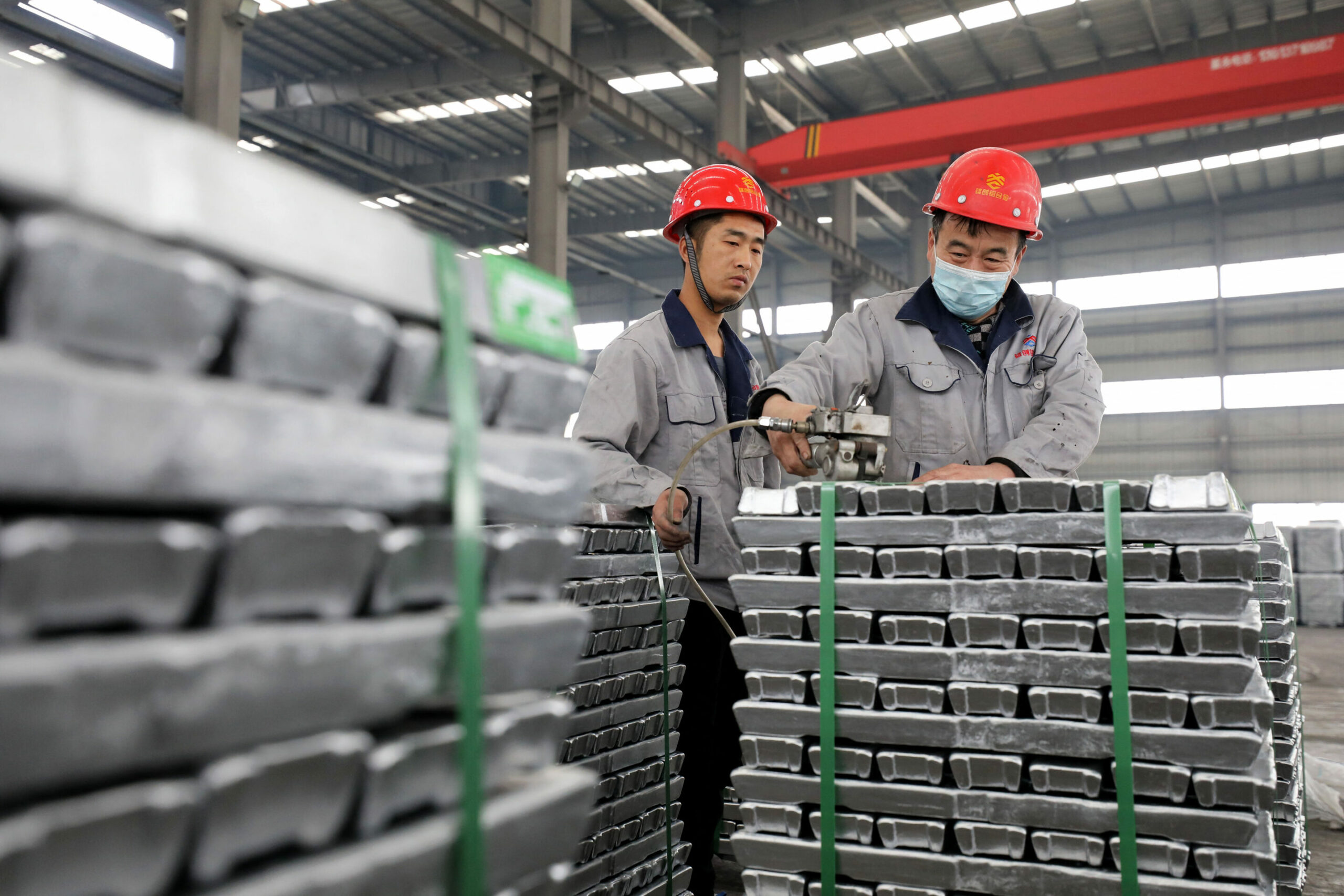
Employees work with aluminium ingots at a factory in Huaibei in China's eastern Anhui province on February 9, 2022. Credit: Belga / AFP
Europe too, will be slapped with tariffs and could face being flooded with Chinese imports as Beijing looks for new markets to make up for the loss of business in the US. EU officials will need to find new trading allies, possibly in the United Kingdom, the Indo-Pacific, Africa and the Gulf, to shore up the effect of Trump’s tariffs.
The EU could also increase its tariffs on all US exports to the same level as the US tariffs, except for products imported from the US identified as crucial for the EU, as argued by Brussels-based think tank Bruegel. Trump has also threatened ally Canada with tariffs, who have vowed that “nothing is off the table” when it comes to a response.
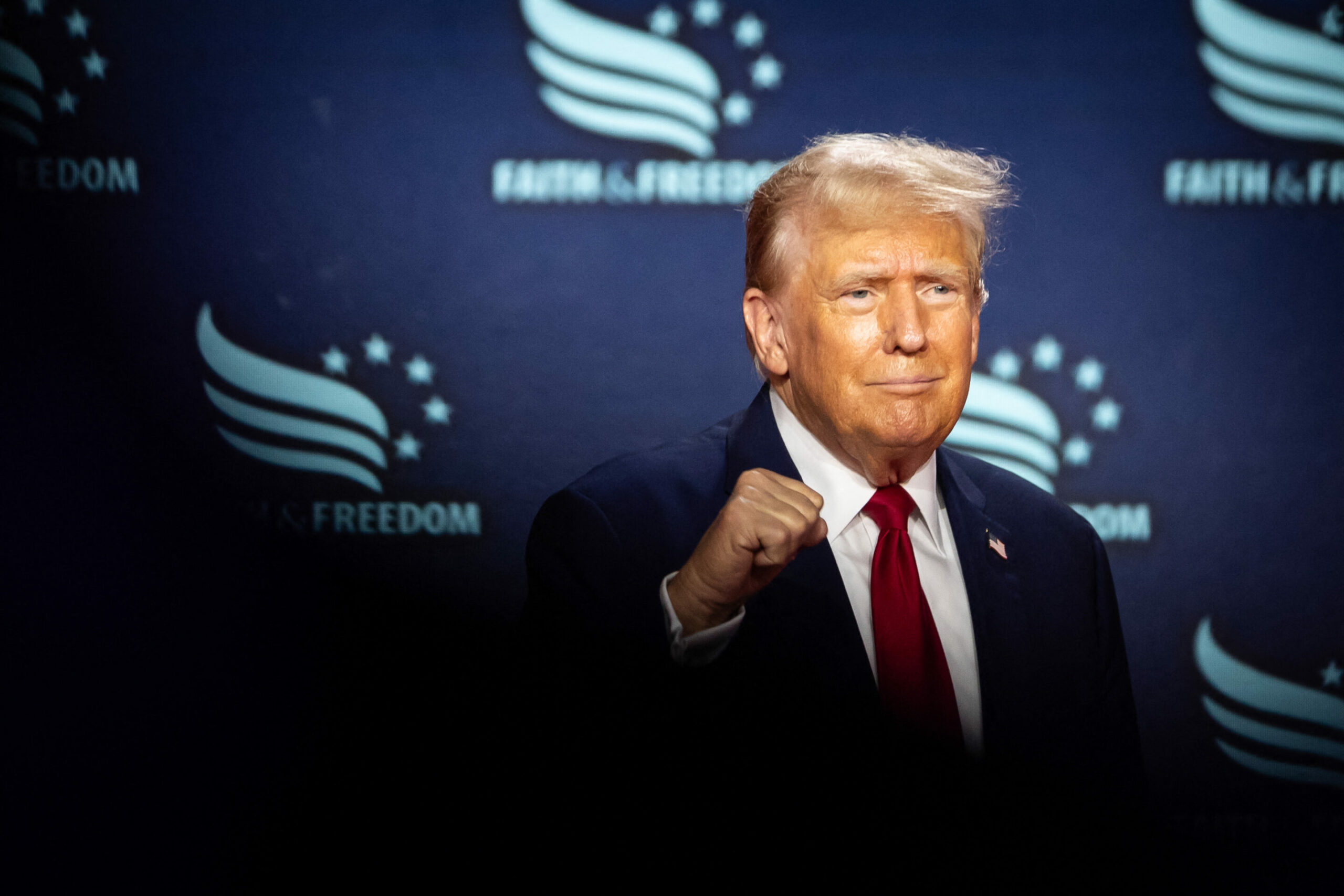
Donald Trump pumps his fist after speaking at a conference in Washington, DC, June 22, 2024. Credit: Belga
Trump’s seemingly erratic foreign policy positions will keep US allies, and foes alike, on their toes – just as they did during his last presidency.
Driven not unsubstantially by personal and economic interests, Trump yields his power through his relationships with the wealthy business class of America: You scratch my back, I scratch yours. This time will likely be no different, Trump will pick up from where he left off.
But Biden's ominous farewell speech from last week exposes a darker side of the situation in the United States. "Today, an oligarchy is taking shape in America of extreme wealth, power, and influence that literally threatens our entire democracy, our basic rights and freedoms, and a fair shot for everyone to get ahead."

